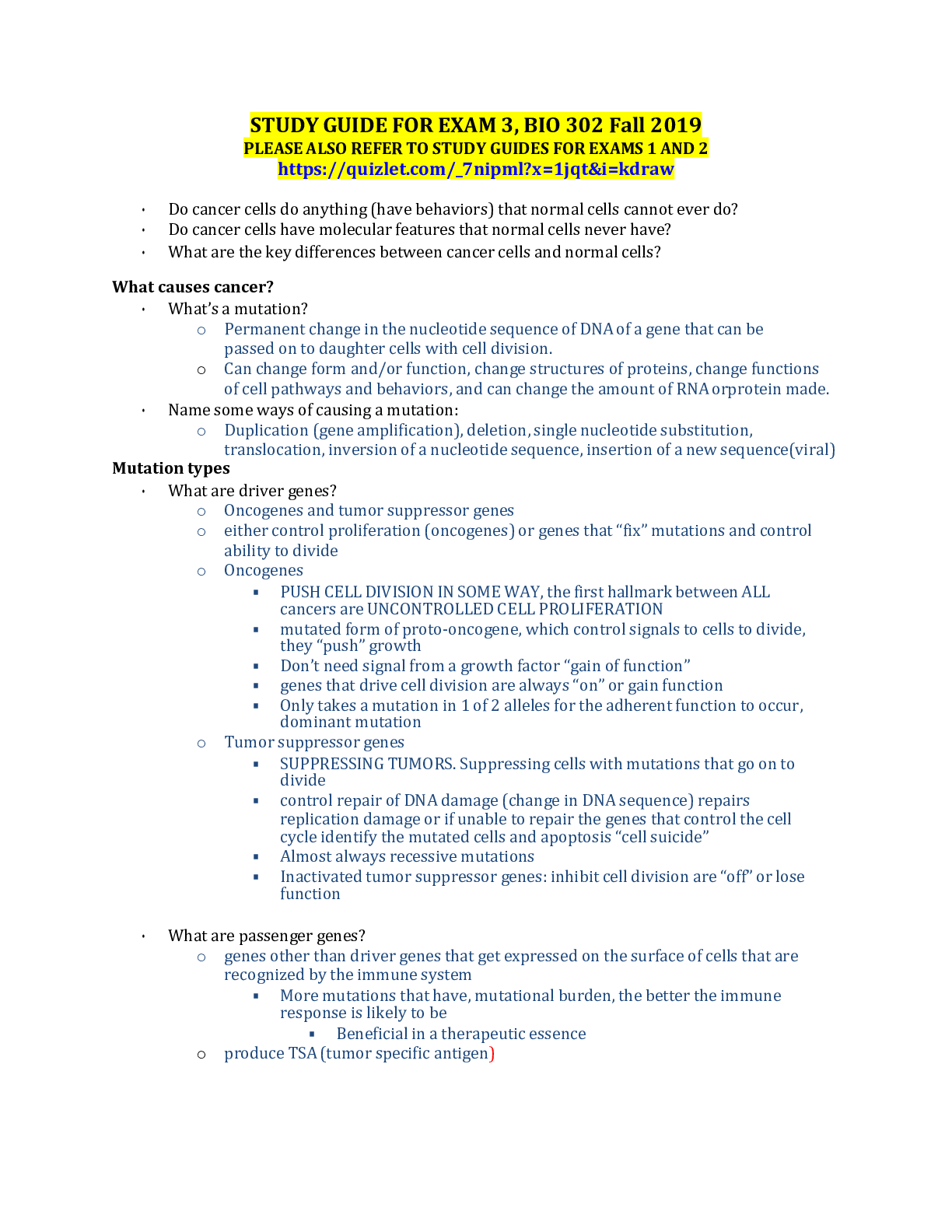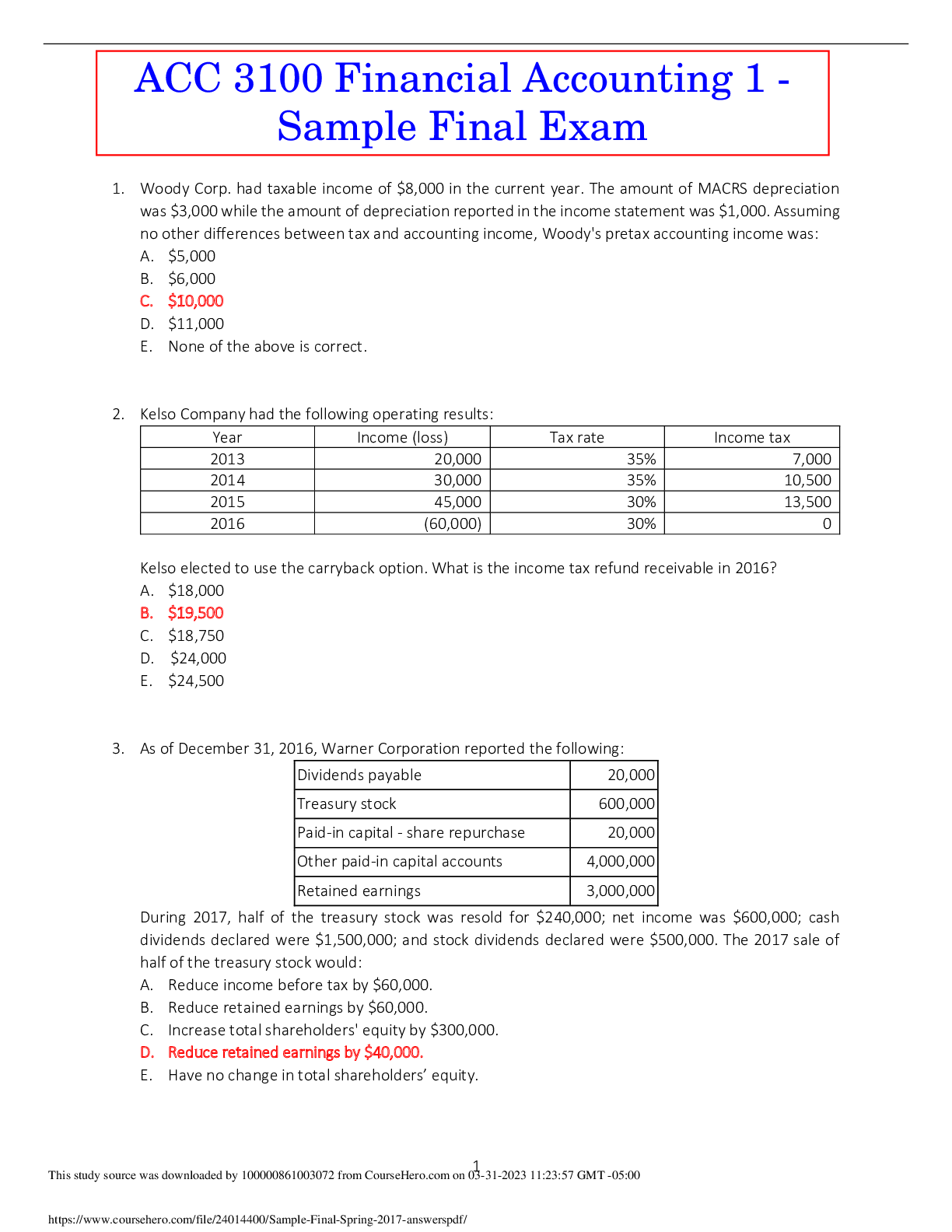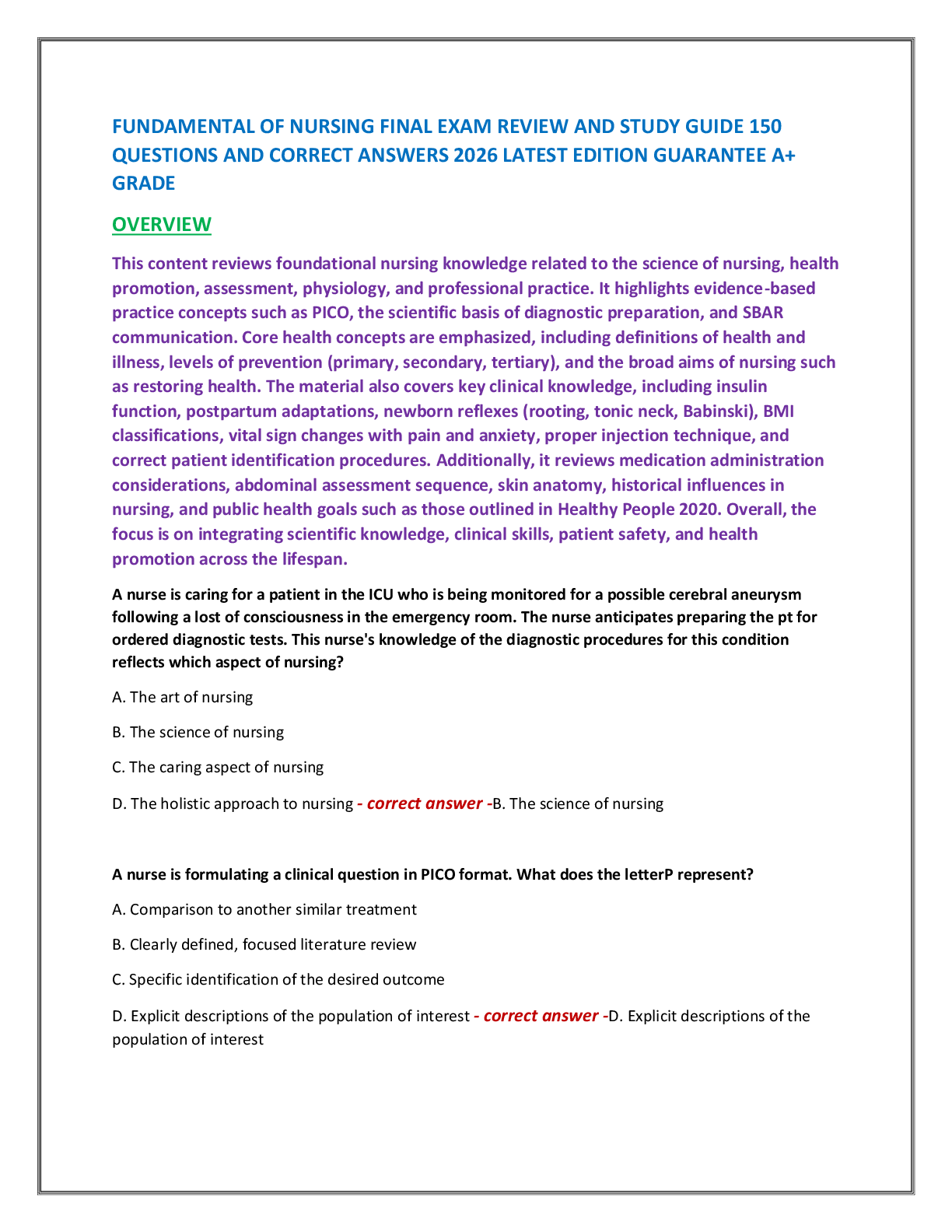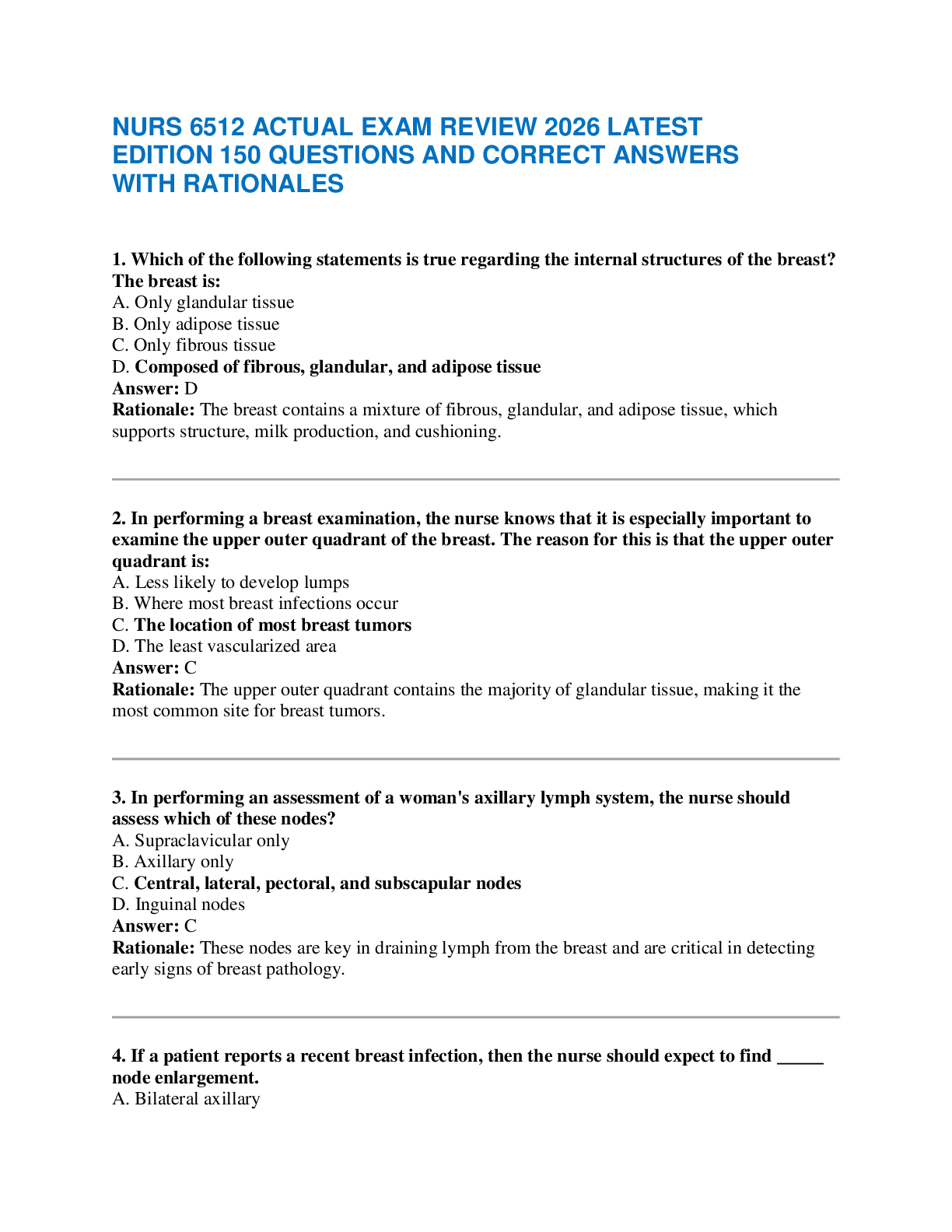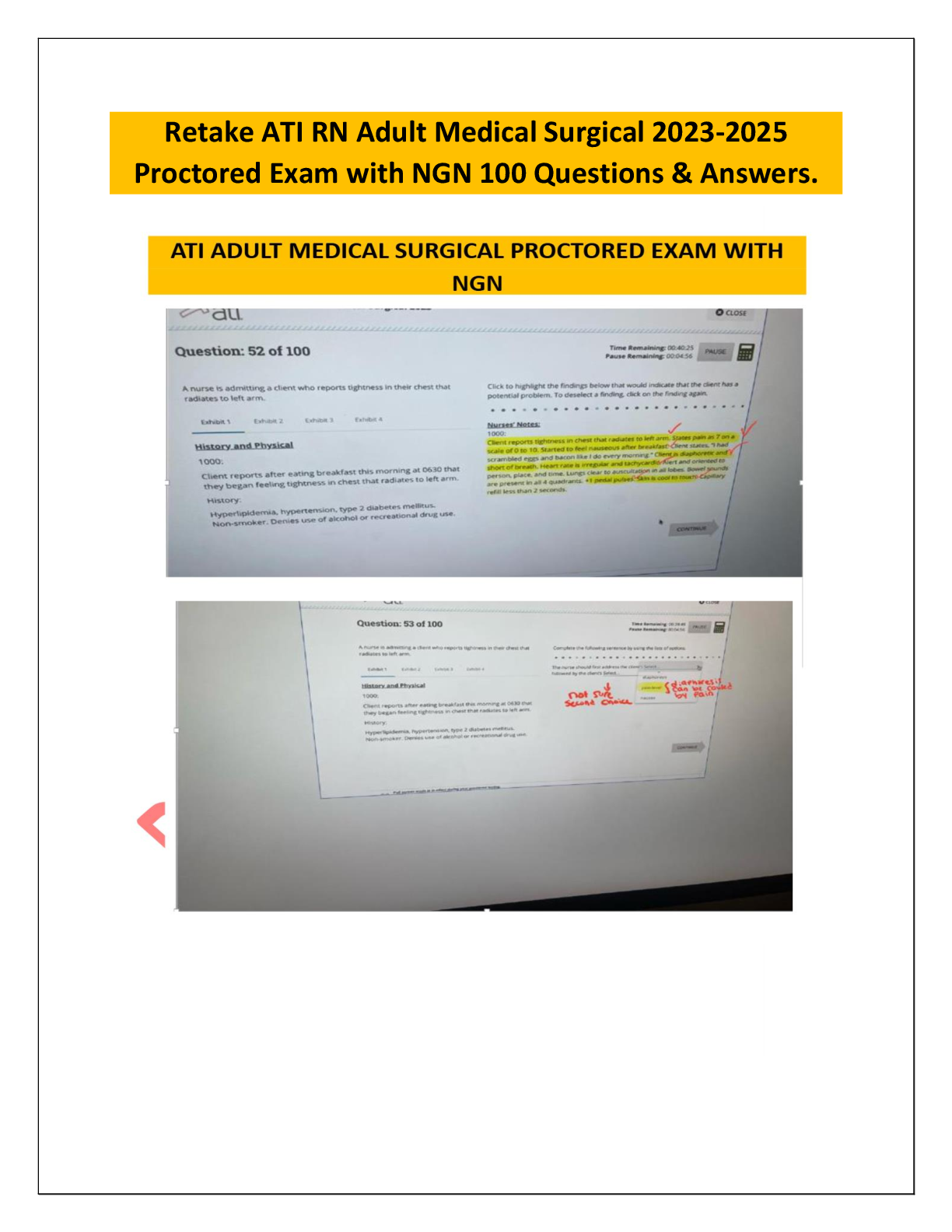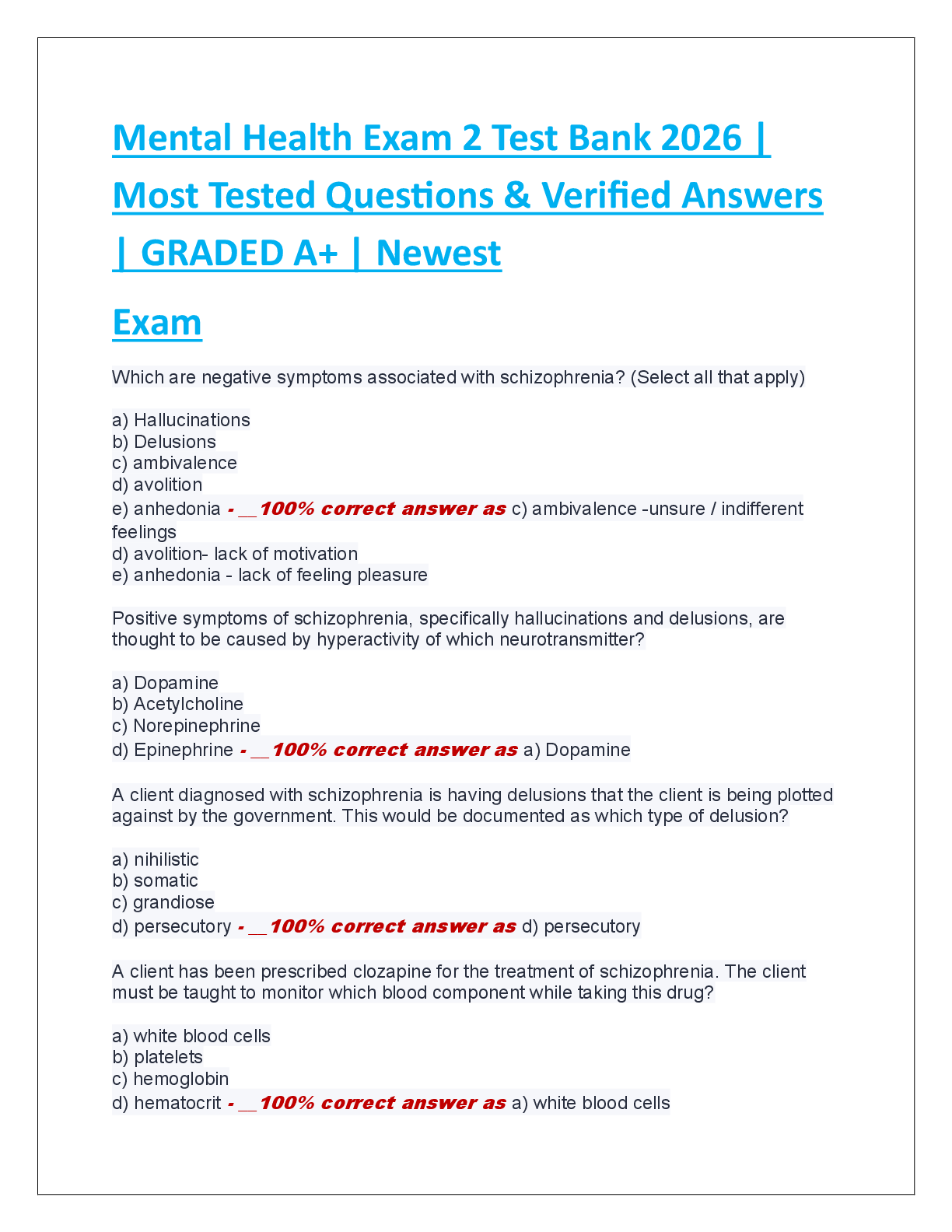• Do cancer cells do anything (have behaviors) that normal cells cannot ever do?
• Do cancer cells have molecular features that normal cells never have?
• What are the key differences between cancer cells and normal ce
...
• Do cancer cells do anything (have behaviors) that normal cells cannot ever do?
• Do cancer cells have molecular features that normal cells never have?
• What are the key differences between cancer cells and normal cells?
What causes cancer?
• What’s a mutation?
o Permanent change in the nucleotide sequence of DNA of a gene that can be
passed on to daughter cells with cell division.
o Can change form and/or function, change structures of proteins, change functions of cell pathways and behaviors, and can change the amount of RNA or protein made.
• Name some ways of causing a mutation:
o Duplication (gene amplification), deletion, single nucleotide substitution,
translocation, inversion of a nucleotide sequence, insertion of a new sequence (viral)
Mutation types
• What are driver genes?
o Oncogenes and tumor suppressor genes
o either control proliferation (oncogenes) or genes that “fix” mutations and control ability to divide
o Oncogenes
▪ PUSH CELL DIVISION IN SOME WAY, the first hallmark between ALL cancers are UNCONTROLLED CELL PROLIFERATION
▪ mutated form of proto-oncogene, which control signals to cells to divide, they “push” growth
▪ Don’t need signal from a growth factor “gain of function”
▪ genes that drive cell division are always “on” or gain function
▪ Only takes a mutation in 1 of 2 alleles for the adherent function to occur, dominant mutation
o Tumor suppressor genes
▪ SUPPRESSING TUMORS. Suppressing cells with mutations that go on to divide
▪ control repair of DNA damage (change in DNA sequence) repairs replication damage or if unable to repair the genes that control the cell cycle identify the mutated cells and apoptosis “cell suicide”
▪ Almost always recessive mutations
▪ Inactivated tumor suppressor genes: inhibit cell division are “off” or lose function
• What are passenger genes?
o genes other than driver genes that get expressed on the surface of cells that are
recognized by the immune system
▪ More mutations that have, mutational burden, the better the immune response is likely to be
▪ Beneficial in a therapeutic essence
o produce TSA (tumor specific antigen)
o only significant if it lands in a gene that would affect the behavior of the gene
o Mutations: Some of the DNA changes are in genes that don’t change the behavior of the cell
o The more passenger gene mutations you have, the more likely your immune system is active to these and the more you respond to therapy
o A passenger mutation has no effect on the fitness of a clone (recessive)
• What is the epigenome?
o DNA methylation and gene silencing – a Rx target?
o Histone modification and gene silencing – a Rx target?
o Epigenetic silencing of tumor suppressor genes is reversible.
Name the Hallmarks of Cancer – what’s their basis?
• Sustained proliferative signaling – what are oncogenes? Cell surface through nucleus and cell cycle (positive regulators like cyclins)
o Increasing growth factor production/utilization
o Producing it’s own growth factors
o Increasing the number receptors on cell surface
o Utilizing mutated receptors
o Activating downstream proteins in the growth pathway
o Stimulating normal cells to produce more growth factors
• Evading growth suppression – what are tumor suppressor genes?
o Caretakers: damage detection and repair enzymes
o Gatekeepers: DNA damage cell cycle checkpoint control: repair or die
▪ Why is tp53 tumor suppressor gene so important?
▪ It REGULATES THE CELL CYCLE and is the primary gatekeeper – it is called “the master tumor suppressor gene” and is the most commonly mutated tumor suppressor gene in cancer
▪ p53 is also known as “the guardian of the genome” because
▪ it is responsible for detecting DNA damage in the genome and eliminating cells with damaged genomes
▪ p53 also promotes normal aerobic metabolism so
▪ its loss pushes the cancer cell to anaerobic metabolism
[Show More]
